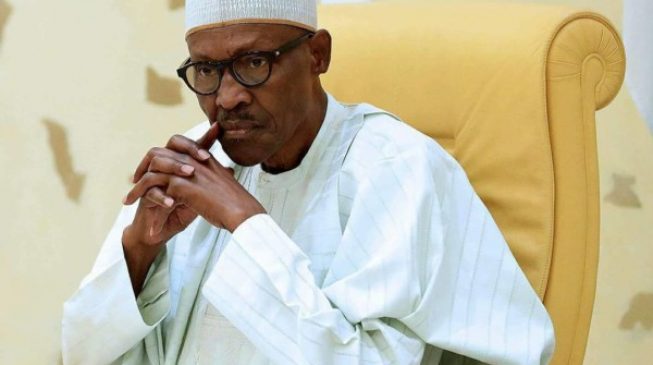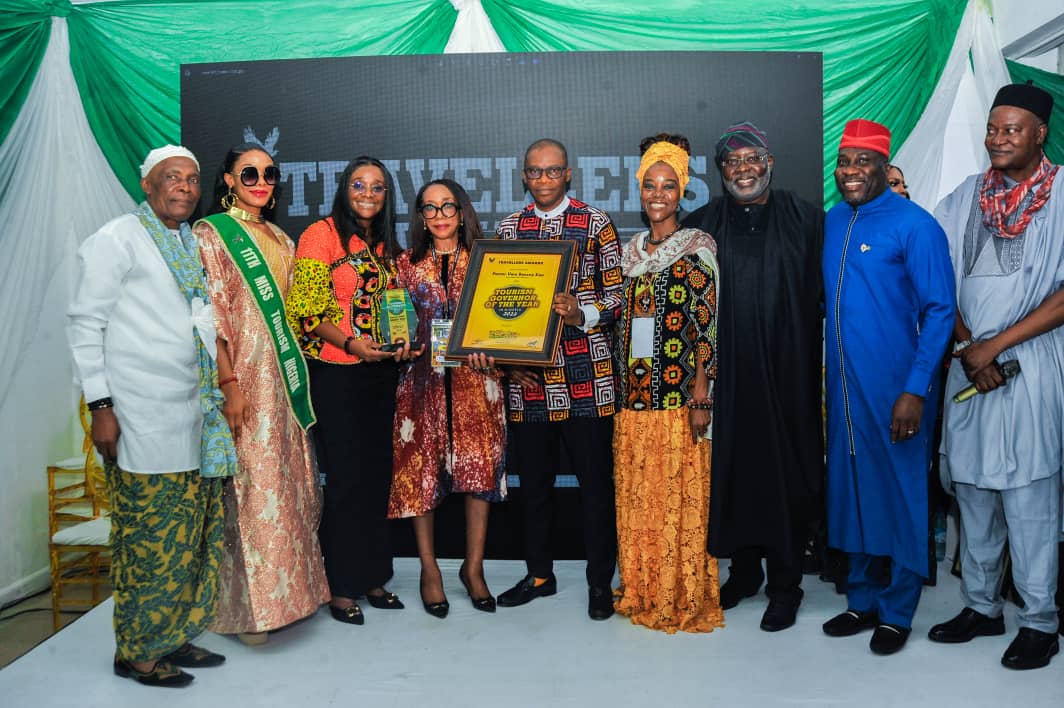By Abdullahi Dass
It is generally believed that President Muhammadu Buhari has a near unshakeable stranglehold on the electorate in the North, especially in the North-west zone consisting of Kaduna, Kano, Katsina, Kebbi, Jigawa, Sokoto and Zamfara States.
For a fact, in the last 15 years, Buhari has consistently garnered between 11 and 12 million votes in the three zones of the North. The only exception was when he contested against Late President Umaru Musa Yar’adua in 2007 when his acclaimed domination of northern electorate was broken almost along the middle. Yar’Adua polled 48 percent to Buhari’s 52 percent. This might be due to the fact that both men are Fulani Muslims from same Katsina State.
The question therefore arises that: Is it not better for any party that intends to defeat the Buhari administration democratically to field a candidate with similar influence and pluses like Yar’Adua from the North-west?
There is the need, at this point, to note that Yar’Adua’s exemplary performance against Buhari was not all due to political attributes of the former Governor of Katsina State.
Two factors were at play here, the most important being that Yar’Adua contested against Buhari with the solid and strong backing of a highly respected national icon, President Olusegun Obasanjo who was then the incumbent President.
Obasanjo was in firm control of the Presidency and he had tried to stay in power through a third term agenda, which ordinarily going by the culture of politics in Africa, was not too difficult an ambition to achieve. However, the plan failed. The Northern reaction, from both the elite and the grassroots was that of gratitude and relief that Obasanjo was finally leaving and giving the North a chance to gain power back. It was made a lot easier because the candidate, Yar’Adua was a Northern aristocrat and a Muslim.
Against such considerations and situations mentioned above, the Buhari phenomenon paled into insignificance when put alongside an overriding and collective Northern interest and intense desire to get power back. In that particular election, head and tail, the North was sure to win. Sacrificing Buhari was a no issue. However, today, the situation is completely different and not comparable to what existed in 2007.
None of the aspirants in the opposition party – Governor Aminu Waziri Tambuwal, Alhaji Attahiru Bafarawa, Barrister Tanimu Turaki, Senator Rafiu Musa Kwankwaso, Alhaji Sule Lamido and Sen. Ahmed Makarfi has the political clout capable of doing any significant havoc comparable to that done by Umaru Yar’adua.
First, as common to all of them their maximum influence is nearly limited to their states of origin. This applies to Saminu Turaki, Tambuwal, Bafarawa, Lamido and Makarfi. Only Kwankwaso has a not too significant spread outside Kano, his state of origin. The Kwankwansiya movement essentially exists, at least 90 percent of it, in Kano and its environs. It is not distinctly noticeable in Sokoto or Kebbi, and neither in Yobe or Adamawa, not to talk of Niger and Nassarawa.
Unfortunately, even in Kano, its influence has been slightly whittled down by Mallam Ibrahim Shekarau’s recent defection to Buhari’s All Progressives Congress (APC). The combination of two of the three strong political pillars in Kano (Gov. Umaru Ganduje and Shekarau) being in APC, is a mortal injury to the Kwankwansiya movement in Kano.
Second, as clearly stated in the Yar’Adua case, the existence of a supportive incumbent Federal Government assisted the candidate in no small measure and the absence of such incumbent support presently, totally renders impotent any dream possibility of depleting or eroding Buhari’s support base in the the North West or the North in general by any of the acclaimed opposition aspirants from the North West.
Third, none of these aspirants from the North-west has any known or politically appreciable presence, followership, support or acceptability in any of the Southern zones. Their penetration in the South is abysmally poor and insignificant and they can only rely on ineffectual acolytes to mobilise support for them in the South.
In conclusion, therefore, none of the six aspirants in the PDP from the North West has what it takes to even reduce Buhari’s electoral value by as much as 10 percent in the North West or North in general. And also, none has a known or visible following in the south with which they can upstage Buhari’s entrenched political associates in the South, especially in the South West, which is the second largest voting population in the country.
THE FICTION:
The greatest political fallacy concerning the 2019 elections however is the postulation that a President cannot emerge in Nigeria without the person winning in the North-west zone. Nothing can be farther from the truth than this assumption or perception. The reality, the national political antecedents and bare electoral facts based on past results do not support this position.
First, if the votes of the North west was of such electoral indispensability, why was it impossible for Buhari to win in his first three attempts at the Presidency, despite his consistent six million votes from the North west and approximately 12 million votes from the entire North in all previous three elections; 2003, 2007 and 2011.
Second, in 2003, Obasanjo polled a total votes of 24.2 million against Buhari”s 13.12 million. If all the votes Obasanjo garnered from the North Central, North East and North West (9 million) were to be removed from his votes, he would still have won with a total of 15.2 million votes against Buhari’s total 13.12 million across the country.
Third, in 2011, former President Goodluck Jonathan defeated Buhari, polling a total of 22.2 million as against Buhari’s 12.09 million. Of this vote for Buhari, a whopping 10.7 million came from the three northern zones
Also, as it was with Obasanjo in 2003, so it was with Jonathan in 2011. If all the 8.3 million votes scored by the former President in the three Northern zones were to be totally deleted from his votes he would still have defeated Buhari because Jonathan would have had 13.9 million votes left to Buhari’s 12. 09 million votes.
In 2019, there are new considerations which make Buhari’s victory against a nationally acceptable opposition candidate an electoral impossibility.
One, 2015 was Buhari’s finest year politically. He was packaged and widely accepted as a national saint, poor but with unparalleled integrity; with great expectations about competence and capability. Unfortunately, even among his most ardent supporters, these “dream” attributes have simply evaporated.
Gross incompetence, lack of capacity and lack of direction has replaced Buhari’s erstwhile “white coated” qualities and general perception.
The prevailing economic conditions, pervasive poverty, hunger, insecurity and growing unemployment across the social strata in the country has made Buhari’s ratings and acceptability to nose-dive. The frightening effect of the unchecked activities of the herdsmen and the obvious and undisguised parochialism that is rife in this administration has further eroded the confidence people have in this administration.
It is safe, therefore, to assume that of the 12 million regular votes for Buhari in the North, a conservative 20 percent of these votes must have been lost because of all the facts stated above plus the fact that some of the major support pillars, the strength of which supported Buhari to come to power have left him and his party. This will include members of the new PDP like Senate President Abubakar Bukola Saraki, Kwankwaso and others. This effectively will reduce the 12 million votes to (12-2.4 million) 9.6million votes.
Buhari garnered two million votes from the six states of the North Central in 2015. Today, only Nassarawa, Kogi and Niger remain in the group. This easily can be translated to another loss of about one million votes.
Effectively, the Buhari electoral “supremo” value has grossly reduced to between 8 and 9 million votes. If we make allowance for the 10 million increase in registered voters nationwide and with the projected voter turnout of about 50 percent, Buhari’s vote may however increase by an extra one million votes.
From all the above, without rigging or any widespread electoral malpractice, as witnessed in the Osun State case, the maximum votes Buhari will get from the North will be less than 10 million votes in total.
To make matters worse, any vote lost by Buhari from his Northern homestead, he will not recover it from any other zone in the South. Also, any candidate that can poll the kind of votes from the North Central, and the entire South like Obasanjo did in 2003, and Jonathan did in 2011 will win the 2019 elections with an overwhelming majority.
In the South-east and South South zones, Buhari’s performance will not change significantly. The IPOB phenomenon will definitely predominate 2019. A rehearsal was what happened in Anambra governorship elections where the two big parties; APC and PDP with their massive resources were thoroughly beaten and disgraced. The masses disobeyed and ignored their elite leadership and voted not for just the All Progressives Grand Alliance (APGA), but against the interest of the incumbent Federal Government in the South-east.
The South-south is not expected to be much different. There may be a spike of support in Akwa Ibom State due to the influence of Senator Godswill Akpabio, but a spike it will be. No more!
The South-west presents a totally different scenario. Today, and all-through the presidential election in 2019, all the six states in the South- west will be under the control of APC governors. In theory, they will be expected to deliver their states. But this will not happen .
Two of the governors will be lame duck; Oyo and Ogun. Others like Ondo, Ekiti and the new one in Osun are not popular and cannot really exercise much political authority on the voters. The most sophisticated electorate is in the South-west. The electorate here has discerning capabilities and has an antecedent of punishing erring governments and political groups. The leader of APC in the South-west, has lost so much political goodwill and currency. He is almost an expiring political ‘generalissimo’.
In the South West, the results of local elections, that is; governorship, senate, House of Representatives and state assemblies will be different from that of the presidential election.
However, because the entire South-west will be governed by APC governors, and because the South West represents the second largest voting population in the country, it will be impossible for the opposition to win in 2019, if it leaves the South-west completely open and the electorate without any choice if it selects a candidate that on his own does not have any special appeal to the electorate in this zone.
The political irony here is that a North-west candidate is not what is required for PDP to win in 2019 against Buhari. Rather, the political imperative is in the choice of a candidate that can split the South-west votes. This actually is the master key that can ensure victory for the opposition in 2019.
Dass, a political analyst, writes from Abuja
Culled from ThisDay

 News6 years ago
News6 years ago
 Featured6 years ago
Featured6 years ago
 Boss Picks6 years ago
Boss Picks6 years ago
 Headline6 years ago
Headline6 years ago
 Headline6 years ago
Headline6 years ago
 Headline5 years ago
Headline5 years ago
 Headline6 years ago
Headline6 years ago
 Headline6 years ago
Headline6 years ago






















